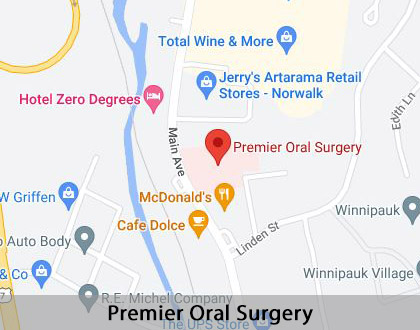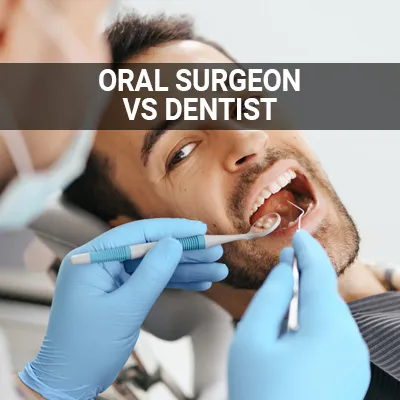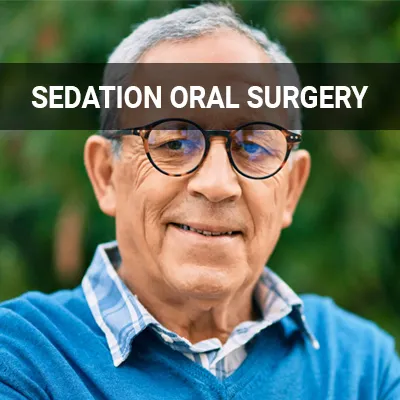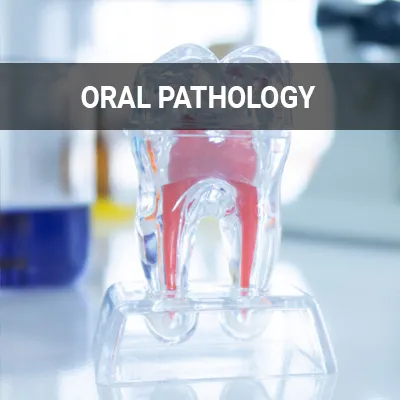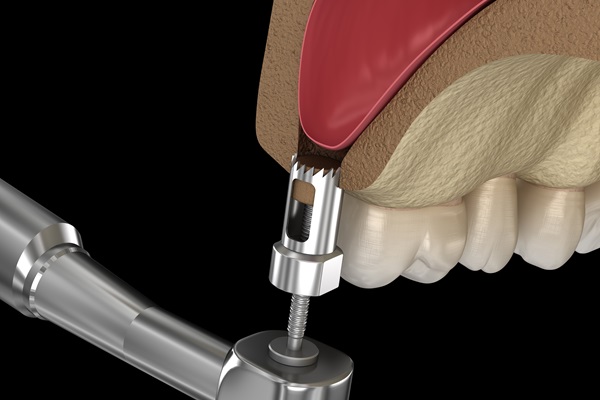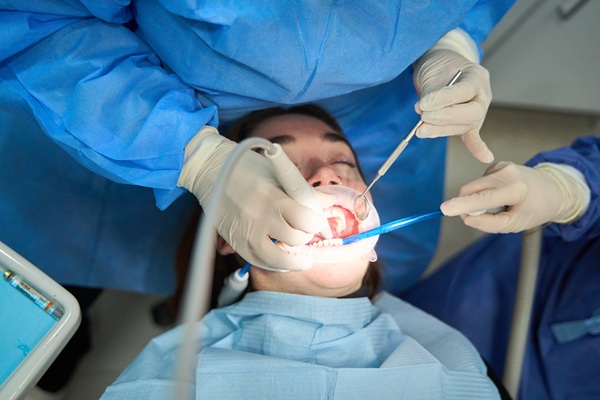Sleep Apnea Norwalk, CT
Sleep apnea treatment can help patients relieve pain and related symptoms so the patient can wake up feeling fully refreshed and well-rested. If you struggle with snoring and breathing issues while asleep, you may benefit from a sleep apnea screening. Sleep apnea is one of the most common sleep-related disorders. As an oral surgeon, we can help prevent snoring from interrupting sleep, among other issues that can affect one’s health.
Sleep apnea treatment is available at Premier Oral Surgery in Norwalk and the surrounding area. Get the rest you deserve. Call our oral surgeon and team today at (203) 945-0049 to schedule an appointment or learn more about our services.
Understanding Sleep Apnea
According to the Mayo Clinic, sleep apnea is a potentially severe sleep disorder where patients experience intermittent breathing in their sleep. There are three main types of sleep apnea: obstructive sleep apnea, central sleep apnea, and complex sleep apnea syndrome. Obstructive sleep apnea (OSA) is the most common form of sleep apnea and the most common sleep-related breathing disorder.
It occurs when the throat muscles relax and block the patient's airway during sleep. Snoring is one of the most noticeable characteristics of obstructive sleep apnea. However, other symptoms can include breathing issues or even cessation of breathing while asleep.
“…sleep apnea is a potentially severe sleep disorder where patients experience intermittent breathing in their sleep.”
Common Causes of Sleep Apnea
According to WebMD, the most common cause of obstructive sleep apnea in adults is excess body weight since being overweight increases the chance of having extra soft tissue in the back of the throat. When the throat and tongue muscles are more relaxed during sleep, the soft tissue may cause the airway to become blocked. People with obstructive sleep apnea are either overweight or obese.
Enlarged tonsils or adenoids and certain dental conditions can cause obstructive sleep apnea in children. However, less common causes include a tumor or growth in the airway and certain congenital abnormalities. Untreated obstructive sleep apnea can lead to serious complications in patients of any age, ranging from accidents to cardiovascular disease and premature death. As such, immediate treatment is essential for one's health. Our oral surgeon can help determine if a patient will benefit from sleep apnea treatment.
“Untreated obstructive sleep apnea can lead to serious complications in patients of any age, ranging from accidents to cardiovascular disease and premature death.”
Symptoms of Sleep Apnea
Common symptoms of obstructive sleep apnea include:
- Daytime sleepiness or fatigue
- Dry mouth or sore throat upon waking
- Gastroesophageal reflux disease (GERD)
- Headaches in the morning
- High blood pressure
- Night sweats
- Restlessness during sleep
- Trouble concentrating, forgetfulness, depression, or crankiness
- Waking up often in the middle of the night to pee
Many of the above symptoms are also common to central sleep apnea. In any case, patients' bedmates will often notice their obstructive sleep apnea before they do.
“… patients’ bedmates will often notice their obstructive sleep apnea before they do.”
Check out what others are saying about our dental services on Yelp: Sleep Apnea in Norwalk, CT
Risk Factors for Sleep Apnea
Obstructive sleep apnea occurs when a person's airway is blocked while they are asleep. There are several factors that may increase a person's risk of blockage and obstructive sleep apnea. These include:
- Anatomical Characteristics. Both the size and positioning of one’s jaw, neck, tongue, tonsils, and other tissue near the back of the throat have a direct impact on airflow.
- Cigarette Smoking. Patients who smoke, especially heavily, have been found to have obstructive sleep apnea at a higher rate than those who do not.
- Family History. Patients are more likely to develop obstructive sleep apnea if they have one or more close relatives with the condition.
- Hormone Abnormalities. Certain hormone conditions, such as hypothyroidism and acromegaly, may cause swelling of the tissue near the airway. Alternatively, they may contribute to a person’s risk of obesity.
- Nasal Congestion. People with a limited ability to breathe through the nose are more likely to experience obstructive sleep apnea.
- Obesity. Being overweight may contribute to up to 60% of obstructive sleep apnea cases, as obesity is directly correlated with an anatomical narrowing of the airway.
- Sedative Use. The use of sedatives, including alcohol, can cause tissue in the throat to relax, which facilitates airway obstruction.
- Sleeping on the Back. Sleeping on one’s back makes it easier for tissue to collapse around the airway, facilitating blockages.
“Obstructive sleep apnea is caused by a person’s airway being blocked while they are asleep.”
Questions Answered on This Page
Q. What are some signs of sleep apnea?
Q. What are some of the risk factors for sleep apnea?
Q. How is sleep apnea treated?
People Also Ask
Q. How is an oral surgeon different from a general dentist?
Q. What are the different types of sedation?
Treatments for Sleep Apnea
The first step in treating sleep apnea is typically implementing lifestyle changes. Milder cases of obstructive sleep apnea often respond well to changes in habits, such as quitting smoking, limiting alcohol intake, and getting regular exercise. Sleeping habits should also be looked at. For example, sleeping on one’s back can contribute to sleep apnea. Because being overweight is often a factor in sleep apnea, losing weight is often one of the first lifestyle changes healthcare professionals recommend. In addition, those suffering from sleep apnea are encouraged to avoid sedatives and nasal decongestants, and allergy medications if possible.
If the above measures are not sufficient or if the patient has moderate to severe obstructive sleep apnea, other treatment methods are available. In some cases, surgery may be necessary. Our oral surgeon and team work closely with patients who need surgical intervention to treat their sleep apnea. We develop a customized plan for each patient and guide them through each stage of the process.
“Our team works closely with patients who need surgical intervention to treat their sleep apnea.”
Frequently Asked Questions
Q. How common is obstructive sleep apnea?
A. According to the American Academy of Dental Sleep Medicine, obstructive sleep apnea affects approximately 54 million adults in the United States. Obstructive sleep apnea is the most common form of sleep apnea. Other forms include central sleep apnea and complex sleep apnea syndrome.
Q. What will happen if I do not treat my obstructive sleep apnea?
A. If left untreated, obstructive sleep apnea can cause excessive daytime fatigue, memory loss, and morning headaches. It may also increase the risk of several systemic health issues, including but not limited to type 2 diabetes and coronary artery disease. As such, treating obstructive sleep apnea is crucial to one’s overall health.
Q. How can oral surgery help me with my obstructive sleep apnea?
A. Some cases of sleep apnea can be treated with oral appliances. However, not everyone responds well to this type of treatment or is a good candidate. Surgery is usually recommended for patients with more severe cases. Oral surgery can remove excess tissues or treat structural issues that contribute to obstructive sleep apnea.
Q. How can an oral surgeon help with obstructive sleep apnea?
A. An oral surgeon can screen patients for obstructive sleep apnea and evaluate the airway. They can assess whether or not patients can benefit from surgery. If the practitioner decides that surgical intervention is the most beneficial way to treat a patient's sleep apnea, they will develop a plan customized to the patient.
Q. Can any oral surgeon help me with my obstructive sleep apnea?
A. No. We advise patients to seek an oral surgeon educated in dental sleep medicine to provide safe and quality care. We can help.
Start Feeling Better – Visit Us Today
By visiting us as soon as possible, our team can help get you the professional treatment you need. Instead of waiting around and allowing the symptoms to get worse, we can provide you with treatment options.
Call Us Today
Sleep apnea can disrupt your everyday life. If your sleep apnea is severe, surgical intervention may help. Our team at Premier Oral Surgery are skilled at working with patients like you to overcome sleep apnea. Call our oral surgeon and team today at (203) 945-0049 to schedule an appointment or learn more about our services.
Helpful Related Links
- American Dental Association (ADA). Glossary of Dental Clinical Terms. 2023
- American Academy of Cosmetic Dentistry® (AACD). Home Page. 2023
- American Academy of Maxillofacial Prosthetics. American Academy of Maxillofacial Prosthetics. 2023
- American Association of Oral and Maxillofacial Surgeons. American Association of Oral and Maxillofacial Surgeons. 2023
- American College of Oral and Maxillofacial Surgery. American College of Oral and Maxillofacial Surgery. 2023
- National Cancer Institute (NCI). National Cancer Institute (NCI). 2023
- WebMD. WebMD’s Oral Care Guide. 2023
About our business and website security
- Premier Oral Surgery was established in 2017.
- We accept the following payment methods: American Express, Cash, Discover, MasterCard, and Visa
- We serve patients from the following counties: Fairfield County
- We serve patients from the following cities: Norwalk, Cranbury, Spring Hill, New Canaan, Westport, West Norwalk, East Norwalk, South Norwalk, Wilton, Westport, Weston, New Canaan, Tokeneke, Rowayton, Darien, and Noroton
- Norton Safe Web. View Details
- Trend Micro Site Safety Center. View Details
Back to top of Sleep Apnea

